Answered step by step
Verified Expert Solution
Question
1 Approved Answer
A financial services provider that provides computer software systems approaches you. The company started off as a small private company and has grown strongly
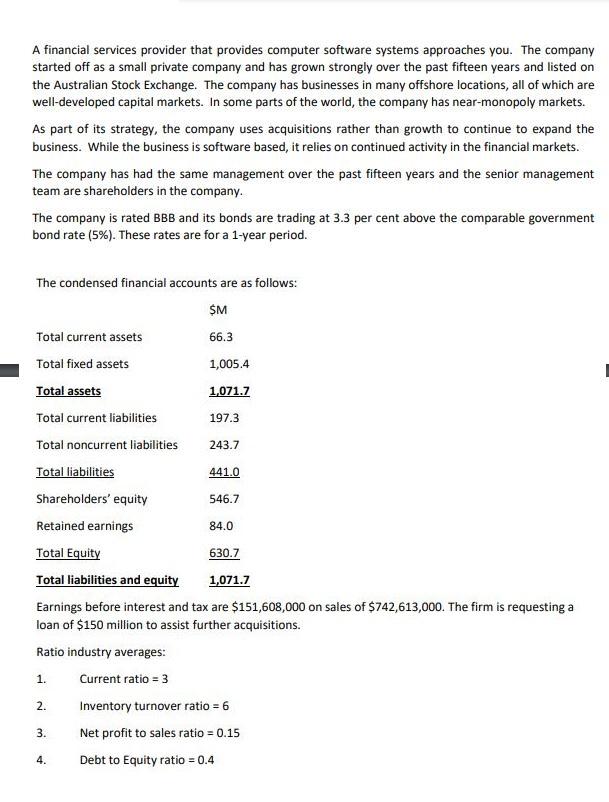
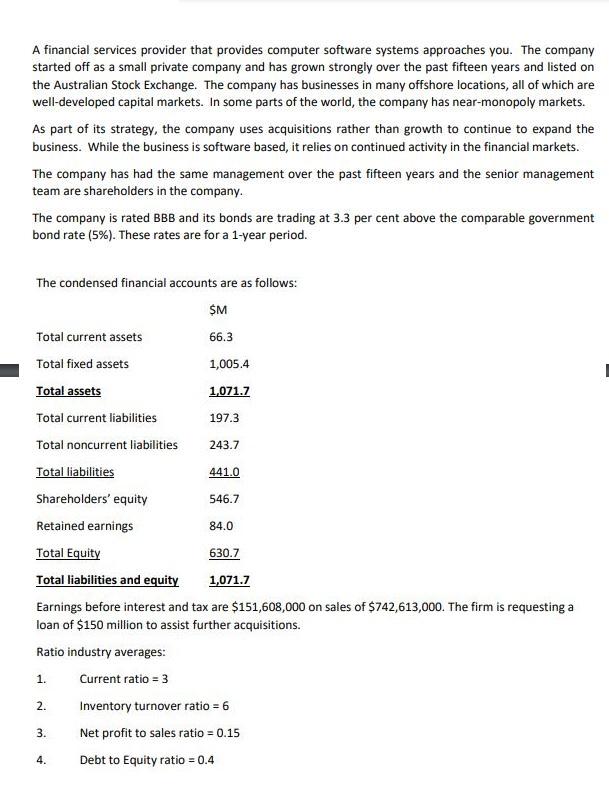
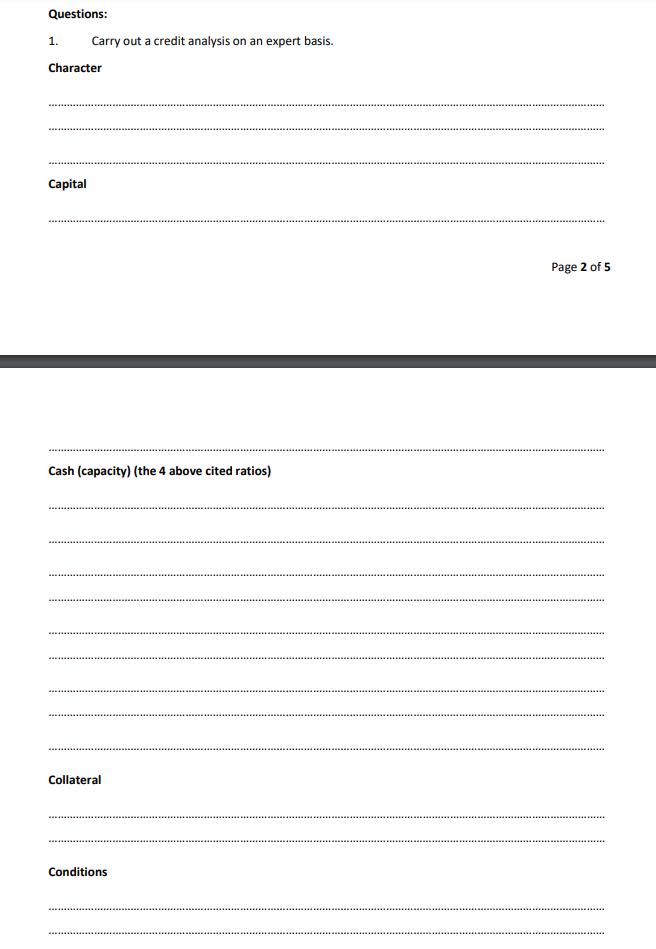
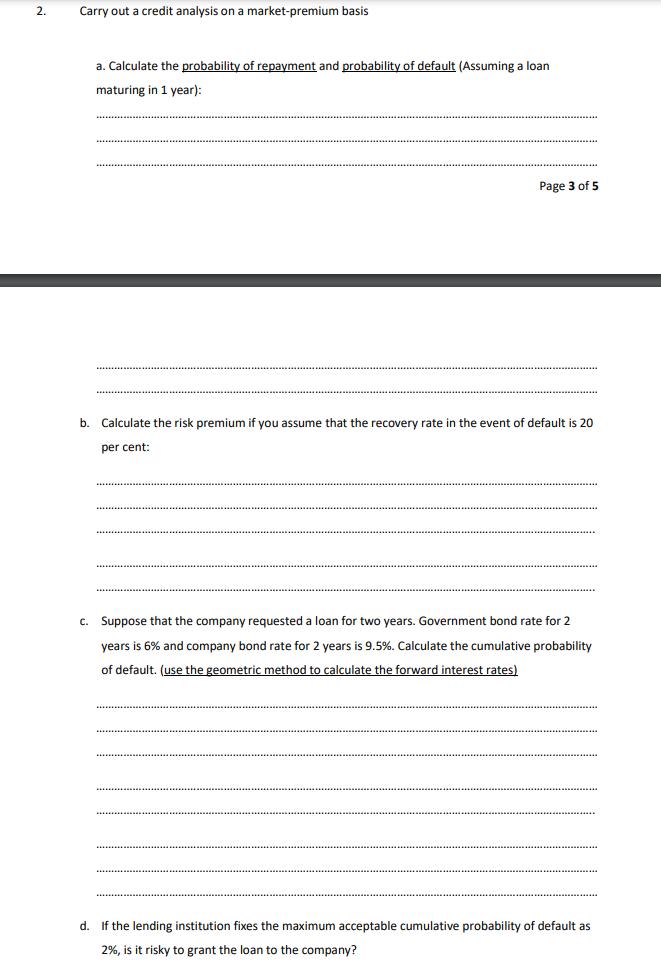
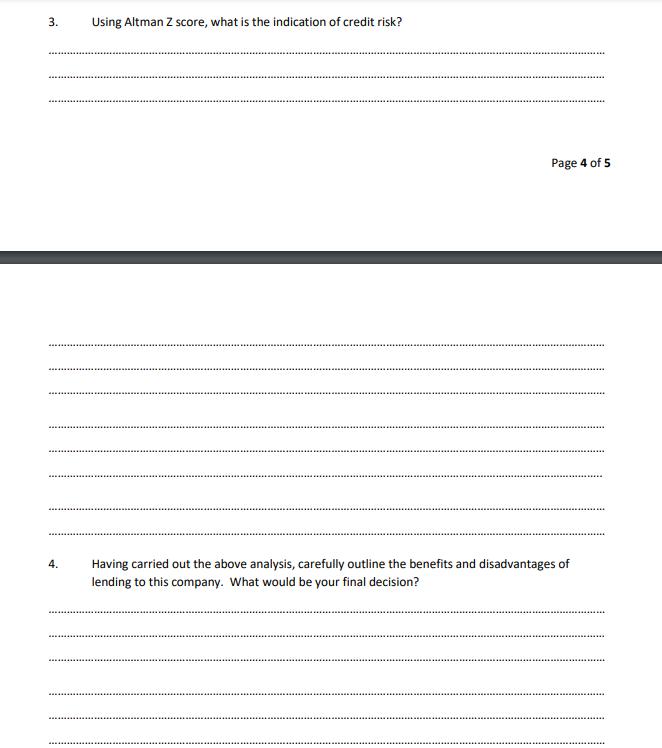
A financial services provider that provides computer software systems approaches you. The company started off as a small private company and has grown strongly over the past fifteen years and listed on the Australian Stock Exchange. The company has businesses in many offshore locations, all of which are well-developed capital markets. In some parts of the world, the company has near-monopoly markets. As part of its strategy, the company uses acquisitions rather than growth to continue to expand the business. While the business is software based, it relies on continued activity in the financial markets. The company has had the same management over the past fifteen years and the senior management team are shareholders in the company. The company is rated BBB and its bonds are trading at 3.3 per cent above the comparable government bond rate (5%). These rates are for a 1-year period. The condensed financial accounts are as follows: $M Total current assets 66.3 Total fixed assets 1,005.4 Total assets 1,071.7 Total current liabilities 197.3 Total noncurrent liabilities 243.7 Total liabilities 441.0 Shareholders' equity 546.7 Retained earnings 84.0 Total Equity 630.7 Total liabilities and equity 1,071.7 Earnings before interest and tax are $151,608,000 on sales of $742,613,000. The firm is requesting a loan of $150 million to assist further acquisitions. Ratio industry averages: 1. Current ratio = 3 2. Inventory turnover ratio = 6 Net profit to sales ratio = 0.15 3. 4. Debt to Equity ratio = 0.4 A financial services provider that provides computer software systems approaches you. The company started off as a small private company and has grown strongly over the past fifteen years and listed on the Australian Stock Exchange. The company has businesses in many offshore locations, all of which are well-developed capital markets. In some parts of the world, the company has near-monopoly markets. As part of its strategy, the company uses acquisitions rather than growth to continue to expand the business. While the business is software based, it relies on continued activity in the financial markets. The company has had the same management over the past fifteen years and the senior management team are shareholders in the company. The company is rated BBB and its bonds are trading at 3.3 per cent above the comparable government bond rate (5%). These rates are for a 1-year period. The condensed financial accounts are as follows: $M Total current assets 66.3 Total fixed assets 1,005.4 Total assets 1,071.7 Total current liabilities 197.3 Total noncurrent liabilities 243.7 Total liabilities 441.0 Shareholders' equity 546.7 Retained earnings 84.0 Total Equity 630.7 Total liabilities and equity 1,071.7 Earnings before interest and tax are $151,608,000 on sales of $742,613,000. The firm is requesting a loan of $150 million to assist further acquisitions. Ratio industry averages: 1. Current ratio = 3 2. Inventory turnover ratio = 6 Net profit to sales ratio = 0.15 3. 4. Debt to Equity ratio = 0.4 Questions: 1. Carry out a credit analysis on an expert basis. Character .............. Capital Page 2 of 5 Cash (capacity) (the 4 above cited ratios) Collateral Conditions 2. Carry out a credit analysis on a market-premium basis a. Calculate the probability of repayment and probability of default (Assuming a loan maturing in 1 year): Page 3 of 5 b. Calculate the risk premium if you assume that the recovery rate in the event of default is 20 per cent: c. Suppose that the company requested a loan for two years. Government bond rate for 2 years is 6% and company bond rate for 2 years is 9.5%. Calculate the cumulative probability of default. (use the geometric method to calculate the forward interest rates) d. If the lending institution fixes the maximum acceptable cumulative probability of default as 2%, is it risky to grant the loan to the company? 3. Using Altman Z score, what is the indication of credit risk? Page 4 of 5 Having carried out the above analysis, carefully outline the benefits and disadvantages of lending to this company. What would be your final decision? 4. A financial services provider that provides computer software systems approaches you. The company started off as a small private company and has grown strongly over the past fifteen years and listed on the Australian Stock Exchange. The company has businesses in many offshore locations, all of which are well-developed capital markets. In some parts of the world, the company has near-monopoly markets. As part of its strategy, the company uses acquisitions rather than growth to continue to expand the business. While the business is software based, it relies on continued activity in the financial markets. The company has had the same management over the past fifteen years and the senior management team are shareholders in the company. The company is rated BBB and its bonds are trading at 3.3 per cent above the comparable government bond rate (5%). These rates are for a 1-year period. The condensed financial accounts are as follows: $M Total current assets 66.3 Total fixed assets 1,005.4 Total assets 1,071.7 Total current liabilities 197.3 Total noncurrent liabilities 243.7 Total liabilities 441.0 Shareholders' equity 546.7 Retained earnings 84.0 Total Equity 630.7 Total liabilities and equity 1,071.7 Earnings before interest and tax are $151,608,000 on sales of $742,613,000. The firm is requesting a loan of $150 million to assist further acquisitions. Ratio industry averages: 1. Current ratio = 3 2. Inventory turnover ratio = 6 Net profit to sales ratio = 0.15 3. 4. Debt to Equity ratio = 0.4 A financial services provider that provides computer software systems approaches you. The company started off as a small private company and has grown strongly over the past fifteen years and listed on the Australian Stock Exchange. The company has businesses in many offshore locations, all of which are well-developed capital markets. In some parts of the world, the company has near-monopoly markets. As part of its strategy, the company uses acquisitions rather than growth to continue to expand the business. While the business is software based, it relies on continued activity in the financial markets. The company has had the same management over the past fifteen years and the senior management team are shareholders in the company. The company is rated BBB and its bonds are trading at 3.3 per cent above the comparable government bond rate (5%). These rates are for a 1-year period. The condensed financial accounts are as follows: $M Total current assets 66.3 Total fixed assets 1,005.4 Total assets 1,071.7 Total current liabilities 197.3 Total noncurrent liabilities 243.7 Total liabilities 441.0 Shareholders' equity 546.7 Retained earnings 84.0 Total Equity 630.7 Total liabilities and equity 1,071.7 Earnings before interest and tax are $151,608,000 on sales of $742,613,000. The firm is requesting a loan of $150 million to assist further acquisitions. Ratio industry averages: 1. Current ratio = 3 2. Inventory turnover ratio = 6 Net profit to sales ratio = 0.15 3. 4. Debt to Equity ratio = 0.4 Questions: 1. Carry out a credit analysis on an expert basis. Character .............. Capital Page 2 of 5 Cash (capacity) (the 4 above cited ratios) Collateral Conditions 2. Carry out a credit analysis on a market-premium basis a. Calculate the probability of repayment and probability of default (Assuming a loan maturing in 1 year): Page 3 of 5 b. Calculate the risk premium if you assume that the recovery rate in the event of default is 20 per cent: c. Suppose that the company requested a loan for two years. Government bond rate for 2 years is 6% and company bond rate for 2 years is 9.5%. Calculate the cumulative probability of default. (use the geometric method to calculate the forward interest rates) d. If the lending institution fixes the maximum acceptable cumulative probability of default as 2%, is it risky to grant the loan to the company? 3. Using Altman Z score, what is the indication of credit risk? Page 4 of 5 Having carried out the above analysis, carefully outline the benefits and disadvantages of lending to this company. What would be your final decision? 4. A financial services provider that provides computer software systems approaches you. The company started off as a small private company and has grown strongly over the past fifteen years and listed on the Australian Stock Exchange. The company has businesses in many offshore locations, all of which are well-developed capital markets. In some parts of the world, the company has near-monopoly markets. As part of its strategy, the company uses acquisitions rather than growth to continue to expand the business. While the business is software based, it relies on continued activity in the financial markets. The company has had the same management over the past fifteen years and the senior management team are shareholders in the company. The company is rated BBB and its bonds are trading at 3.3 per cent above the comparable government bond rate (5%). These rates are for a 1-year period. The condensed financial accounts are as follows: $M Total current assets 66.3 Total fixed assets 1,005.4 Total assets 1,071.7 Total current liabilities 197.3 Total noncurrent liabilities 243.7 Total liabilities 441.0 Shareholders' equity 546.7 Retained earnings 84.0 Total Equity 630.7 Total liabilities and equity 1,071.7 Earnings before interest and tax are $151,608,000 on sales of $742,613,000. The firm is requesting a loan of $150 million to assist further acquisitions. Ratio industry averages: 1. Current ratio = 3 2. Inventory turnover ratio = 6 Net profit to sales ratio = 0.15 3. 4. Debt to Equity ratio = 0.4 A financial services provider that provides computer software systems approaches you. The company started off as a small private company and has grown strongly over the past fifteen years and listed on the Australian Stock Exchange. The company has businesses in many offshore locations, all of which are well-developed capital markets. In some parts of the world, the company has near-monopoly markets. As part of its strategy, the company uses acquisitions rather than growth to continue to expand the business. While the business is software based, it relies on continued activity in the financial markets. The company has had the same management over the past fifteen years and the senior management team are shareholders in the company. The company is rated BBB and its bonds are trading at 3.3 per cent above the comparable government bond rate (5%). These rates are for a 1-year period. The condensed financial accounts are as follows: $M Total current assets 66.3 Total fixed assets 1,005.4 Total assets 1,071.7 Total current liabilities 197.3 Total noncurrent liabilities 243.7 Total liabilities 441.0 Shareholders' equity 546.7 Retained earnings 84.0 Total Equity 630.7 Total liabilities and equity 1,071.7 Earnings before interest and tax are $151,608,000 on sales of $742,613,000. The firm is requesting a loan of $150 million to assist further acquisitions. Ratio industry averages: 1. Current ratio = 3 2. Inventory turnover ratio = 6 Net profit to sales ratio = 0.15 3. 4. Debt to Equity ratio = 0.4 Questions: 1. Carry out a credit analysis on an expert basis. Character .............. Capital Page 2 of 5 Cash (capacity) (the 4 above cited ratios) Collateral Conditions 2. Carry out a credit analysis on a market-premium basis a. Calculate the probability of repayment and probability of default (Assuming a loan maturing in 1 year): Page 3 of 5 b. Calculate the risk premium if you assume that the recovery rate in the event of default is 20 per cent: c. Suppose that the company requested a loan for two years. Government bond rate for 2 years is 6% and company bond rate for 2 years is 9.5%. Calculate the cumulative probability of default. (use the geometric method to calculate the forward interest rates) d. If the lending institution fixes the maximum acceptable cumulative probability of default as 2%, is it risky to grant the loan to the company? 3. Using Altman Z score, what is the indication of credit risk? Page 4 of 5 Having carried out the above analysis, carefully outline the benefits and disadvantages of lending to this company. What would be your final decision? 4. A financial services provider that provides computer software systems approaches you. The company started off as a small private company and has grown strongly over the past fifteen years and listed on the Australian Stock Exchange. The company has businesses in many offshore locations, all of which are well-developed capital markets. In some parts of the world, the company has near-monopoly markets. As part of its strategy, the company uses acquisitions rather than growth to continue to expand the business. While the business is software based, it relies on continued activity in the financial markets. The company has had the same management over the past fifteen years and the senior management team are shareholders in the company. The company is rated BBB and its bonds are trading at 3.3 per cent above the comparable government bond rate (5%). These rates are for a 1-year period. The condensed financial accounts are as follows: $M Total current assets 66.3 Total fixed assets 1,005.4 Total assets 1,071.7 Total current liabilities 197.3 Total noncurrent liabilities 243.7 Total liabilities 441.0 Shareholders' equity 546.7 Retained earnings 84.0 Total Equity 630.7 Total liabilities and equity 1,071.7 Earnings before interest and tax are $151,608,000 on sales of $742,613,000. The firm is requesting a loan of $150 million to assist further acquisitions. Ratio industry averages: 1. Current ratio = 3 2. Inventory turnover ratio = 6 Net profit to sales ratio = 0.15 3. 4. Debt to Equity ratio = 0.4 A financial services provider that provides computer software systems approaches you. The company started off as a small private company and has grown strongly over the past fifteen years and listed on the Australian Stock Exchange. The company has businesses in many offshore locations, all of which are well-developed capital markets. In some parts of the world, the company has near-monopoly markets. As part of its strategy, the company uses acquisitions rather than growth to continue to expand the business. While the business is software based, it relies on continued activity in the financial markets. The company has had the same management over the past fifteen years and the senior management team are shareholders in the company. The company is rated BBB and its bonds are trading at 3.3 per cent above the comparable government bond rate (5%). These rates are for a 1-year period. The condensed financial accounts are as follows: $M Total current assets 66.3 Total fixed assets 1,005.4 Total assets 1,071.7 Total current liabilities 197.3 Total noncurrent liabilities 243.7 Total liabilities 441.0 Shareholders' equity 546.7 Retained earnings 84.0 Total Equity 630.7 Total liabilities and equity 1,071.7 Earnings before interest and tax are $151,608,000 on sales of $742,613,000. The firm is requesting a loan of $150 million to assist further acquisitions. Ratio industry averages: 1. Current ratio = 3 2. Inventory turnover ratio = 6 Net profit to sales ratio = 0.15 3. 4. Debt to Equity ratio = 0.4 Questions: 1. Carry out a credit analysis on an expert basis. Character .............. Capital Page 2 of 5 Cash (capacity) (the 4 above cited ratios) Collateral Conditions 2. Carry out a credit analysis on a market-premium basis a. Calculate the probability of repayment and probability of default (Assuming a loan maturing in 1 year): Page 3 of 5 b. Calculate the risk premium if you assume that the recovery rate in the event of default is 20 per cent: c. Suppose that the company requested a loan for two years. Government bond rate for 2 years is 6% and company bond rate for 2 years is 9.5%. Calculate the cumulative probability of default. (use the geometric method to calculate the forward interest rates) d. If the lending institution fixes the maximum acceptable cumulative probability of default as 2%, is it risky to grant the loan to the company? 3. Using Altman Z score, what is the indication of credit risk? Page 4 of 5 Having carried out the above analysis, carefully outline the benefits and disadvantages of lending to this company. What would be your final decision? 4.
Step by Step Solution
★★★★★
3.44 Rating (160 Votes )
There are 3 Steps involved in it
Step: 1
1 1Character Character is judged by the honesty and integrity of the company which they have portrayed over so may years In 15 years no fraud is dected Also company is into software industry which is ...
Get Instant Access to Expert-Tailored Solutions
See step-by-step solutions with expert insights and AI powered tools for academic success
Step: 2

Step: 3

Ace Your Homework with AI
Get the answers you need in no time with our AI-driven, step-by-step assistance
Get Started


